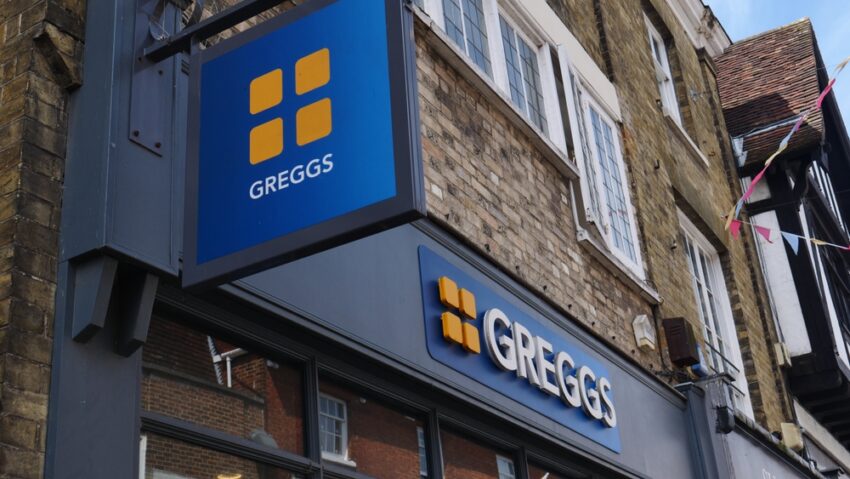Greggs has announced that it will not raise prices for the remainder of the year, even though sales slowed in the third quarter.
CEO Roisin Currie expressed optimism, attributing stabilised costs and new menu offerings as key factors for future growth.
CEO Roisin Currie stated, ‘There are no plans to put up prices for this year,’ citing faster-than-expected cost stabilisation.
Earlier, inflation, primarily driven by rising wages, led to price increases, such as the 5p hike in the cost of Greggs’ signature sausage roll in July. However, price stability has now been achieved.
Despite the easing cost pressures, Greggs experienced a dip in sales during the summer. This decline contributed to a 5.8% fall in its share price, settling at £29.42.
The share price has, however, gained over 20% in the past year. Currie attributed weaker sales in July and August to a combination of poor weather, economic uncertainty, and unrest in several cities that damaged a few stores.
Sales rebounded in September as people returned to work.
Greggs is optimistic about continued growth with the introduction of its autumn menu, which includes new items like pumpkin spice lattes and pumpkin spice doughnuts. These seasonal favourites are expected to drive customer interest and boost sales.
Greggs continues to expand its presence with over 2,500 outlets nationwide and plans to open up to 160 net new shops this year.
The bakery chain is focusing on increasing its footprint in supermarkets, petrol stations, and travel hubs. It has also expanded its delivery partnerships with Uber Eats and Just Eat, ensuring customers have multiple ways to enjoy their favourite products.
Analysts remain positive about Greggs’ long-term growth prospects. Some forecast a 10% increase in pre-tax profits for the year, reinforcing confidence in the company’s strategy.
This optimistic outlook is driven by the company’s robust expansion plans and successful adaptation to market conditions, which have helped maintain a strong performance.
Currie suggested that future price rises might be influenced by statutory minimum wage increases expected next year.
The company remains vigilant about cost pressures and is prepared to make adjustments if necessary, but for now, the focus is on maintaining price stability.
Unfavourable weather and economic uncertainty were significant factors impacting sales during the summer.
The unrest in several cities that led to the damage of some stores also played a role in the sales decline, highlighting the challenges Greggs faces in certain areas.
Greggs’ decision to maintain stable pricing amidst economic challenges is a strategic move aimed at fostering customer loyalty.
With plans for expansion and new seasonal offerings, the company is well-positioned for future growth despite the obstacles faced in the third quarter.


